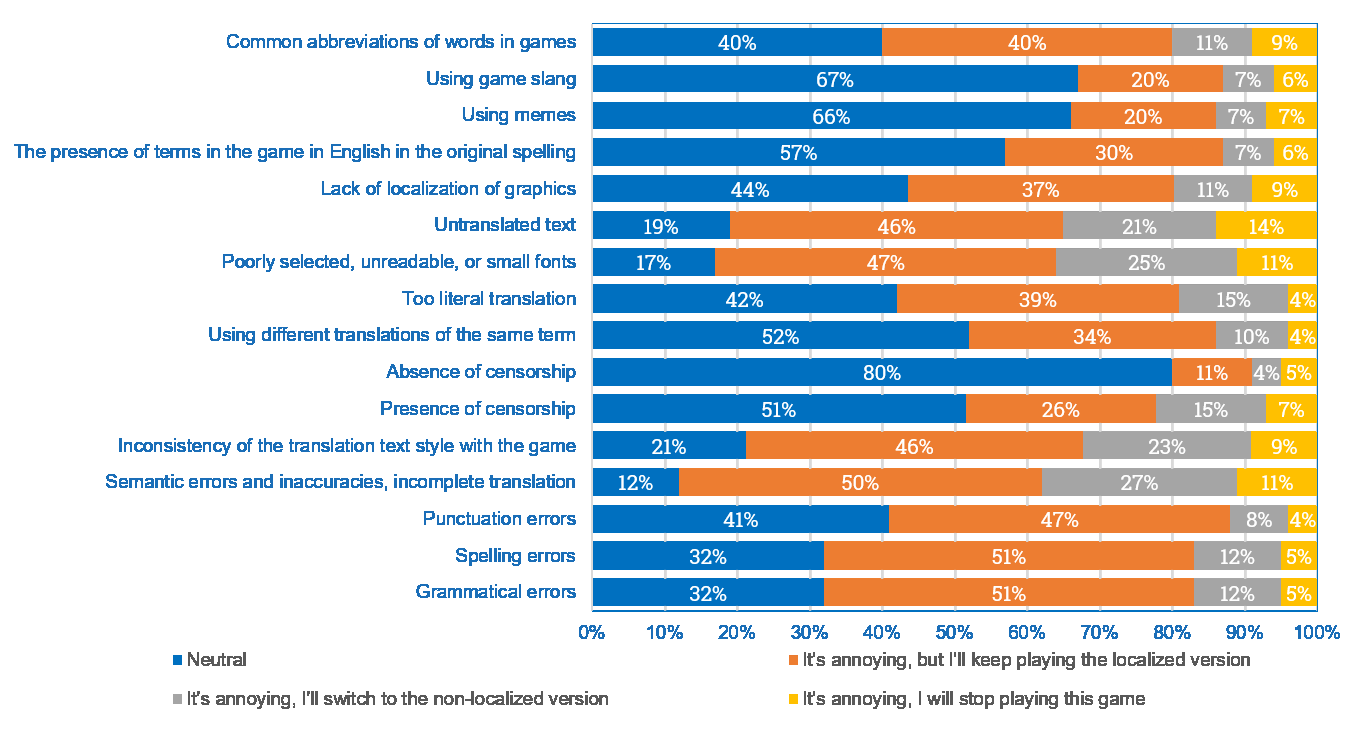Does the absence of the Russian language in game localization impact gamers’ decision-making?
The presence of Russian as a widely spoken language globally, with approximately 258 million speakers and 158 million native speakers, highlights its significance. With over 65 million gamers in Russia alone, the demand for localized games in the Russian language is substantial. On platforms like Steam, Russian ranks as the third most popular language, following English and Chinese.
The inclusion of Russian in the Top 10 recommended languages for game and mobile app localization is influenced by various factors, including market size, user preferences, and the desire for an immersive gaming experience.
Game localization serves a crucial purpose by allowing players to fully engage with the game’s world, comprehend jokes and references, and appreciate cultural nuances. It directly impacts the enjoyment derived from gameplay and can influence players to leave positive reviews. Positive reviews contribute to higher average ratings, indirectly affecting sales and downloads.
Considering these factors, the localization of games into Russian is essential for reaching a wider audience, enhancing player satisfaction, and maximizing the game’s potential success.
When it comes to the extent of localization, a majority of respondents express a preference for either full localization (including translation of all in-game texts and voice-over) or partial localization (translation of all in-game texts along with subtitles). However, the forgiveness of localization errors by gamers varies.
All Correct Games conducted a survey to explore the types of errors that disrupt gameplay and spoil the overall gaming experience. The survey findings revealed that Russian gamers are generally more tolerant of localization errors compared to the Chinese audience. Nonetheless, certain errors, such as semantic inaccuracies and incomplete translations, as well as unreadable fonts, are more likely to prompt players to switch to the non-localized version of the game (27% and 25% respectively). In some cases (11%), these errors can be so bothersome that gamers simply stop playing the game altogether.
An interesting fact that emerged from the survey is that Russian gamers advocate for the preservation of obscene language in translation if it exists in the original game. In the absence of censorship, 91% of Russian-speaking players are willing to continue playing the localized version of the game.

Source: App2top.ru
These insights highlight the importance of thorough localization efforts to minimize errors and ensure a high-quality gaming experience that resonates well with the target audience, taking into account their specific preferences and tolerance for different types of errors.
Surveys have indicated that effective game localization plays a crucial role in broadening the game’s audience, enhancing its rating on platforms like Google Play and the App Store, and even attaining the coveted “Extremely positive” status on Steam. Moreover, receiving positive feedback from satisfied players serves as an added benefit. It is worth noting that Russian gamers are not only open to providing developers with feedback on games but also specifically address the quality of localization. This highlights the significance of incorporating localization efforts and engaging with the gaming community to ensure a successful and well-received game experience.